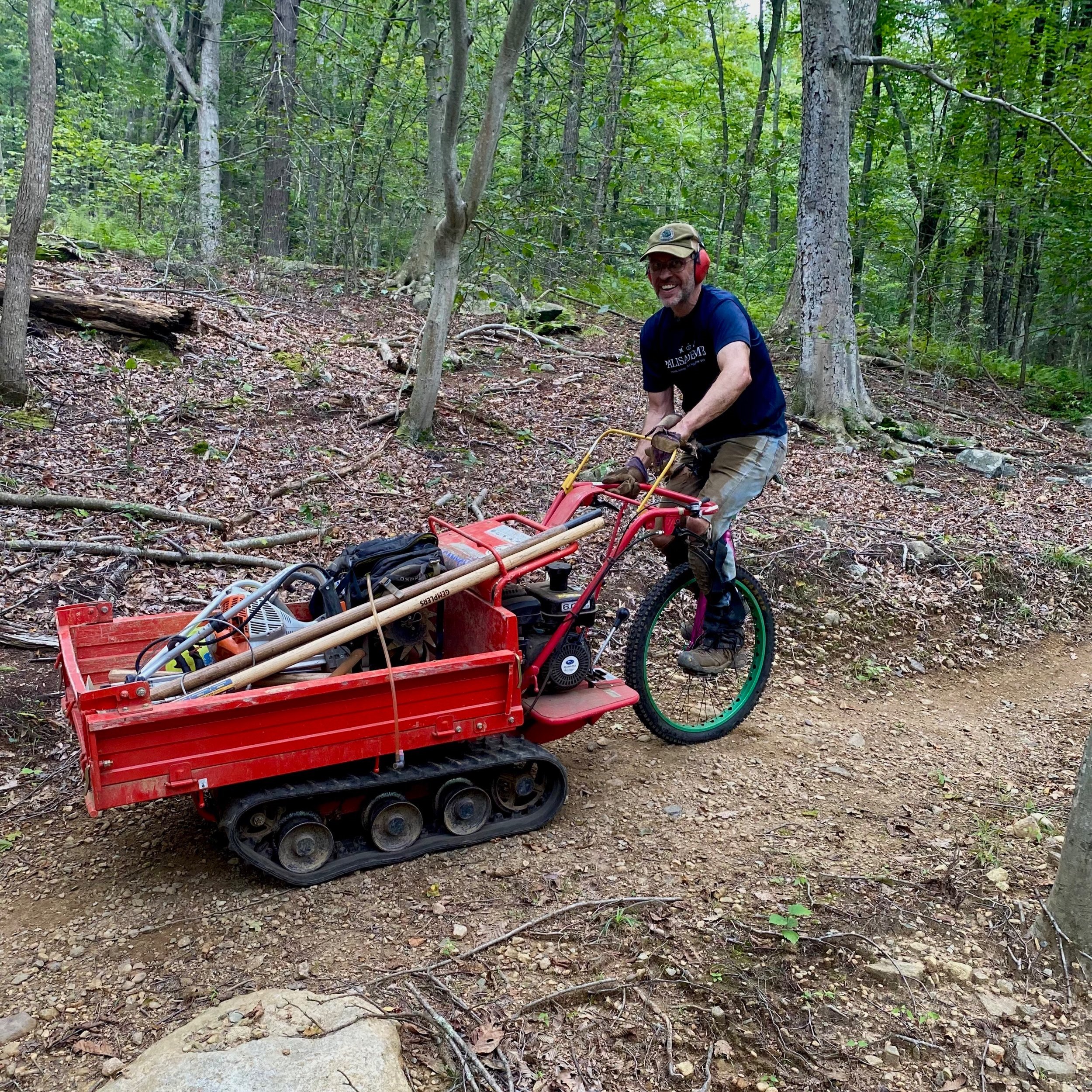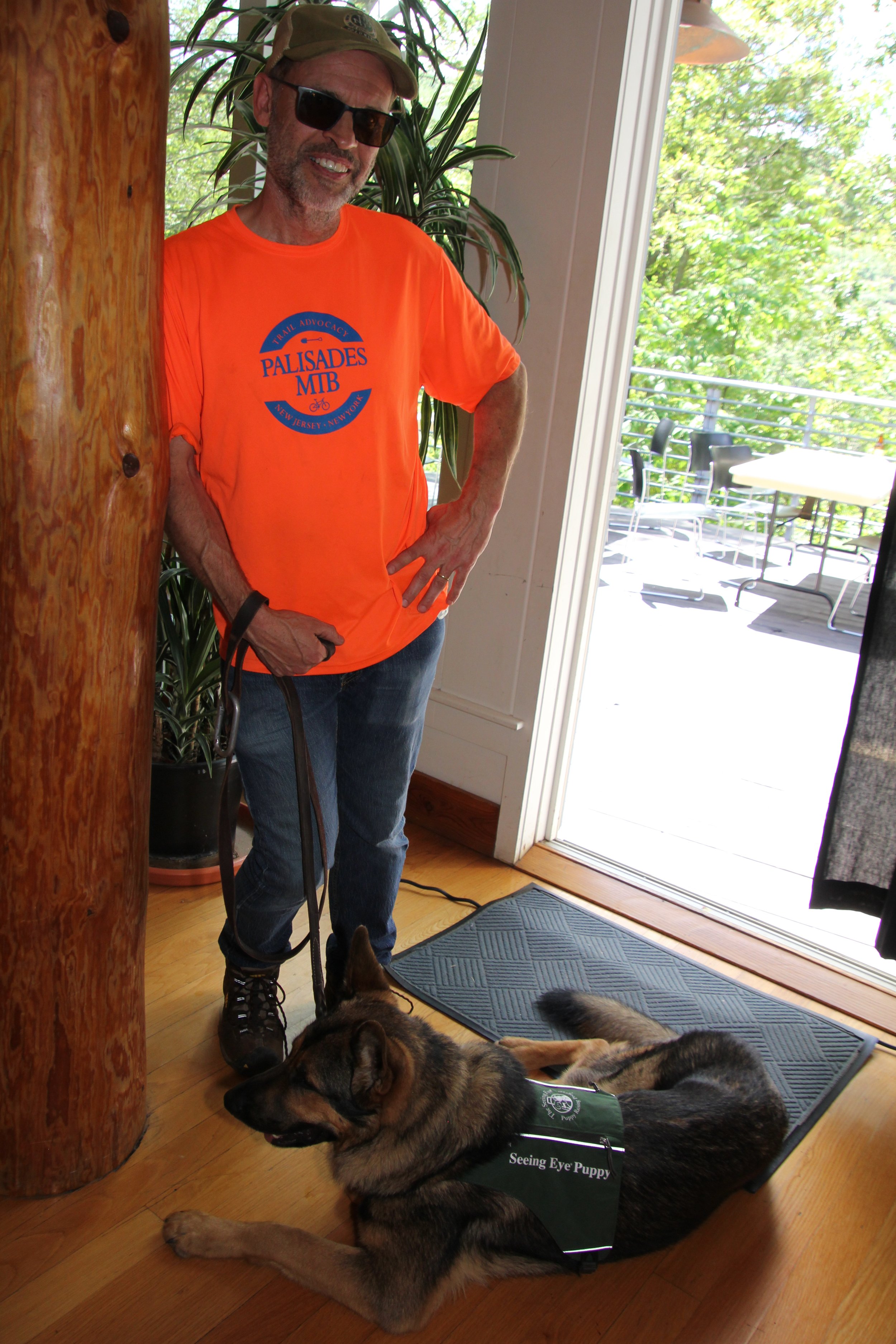Seeing is believing
If you’ve ever ridden mountain bikes at Sterling Forest State Park on the weekends, you have probably met or seen Brian Lanius working on the trails. It’s incredible the number of times I have talked to a rider who’s said that they were riding at Sterling and “there was this guy with a dog and a unicycle moving a giant boulder by himself”. I usually exclaim, “That’s Brian”. Brian may be one of the most dedicated multi-use trail builders and maintainers I have ever met. He has more than once been awarded as a “Dedicated Volunteer” for his hours by the NYNJ Trail Conference and is one of Palisades MTB’s most productive volunteers. What’s even more impressive is the dogs that always accompany Brian are puppies that he is raising for The Seeing Eye company of Morristown, New Jersey.
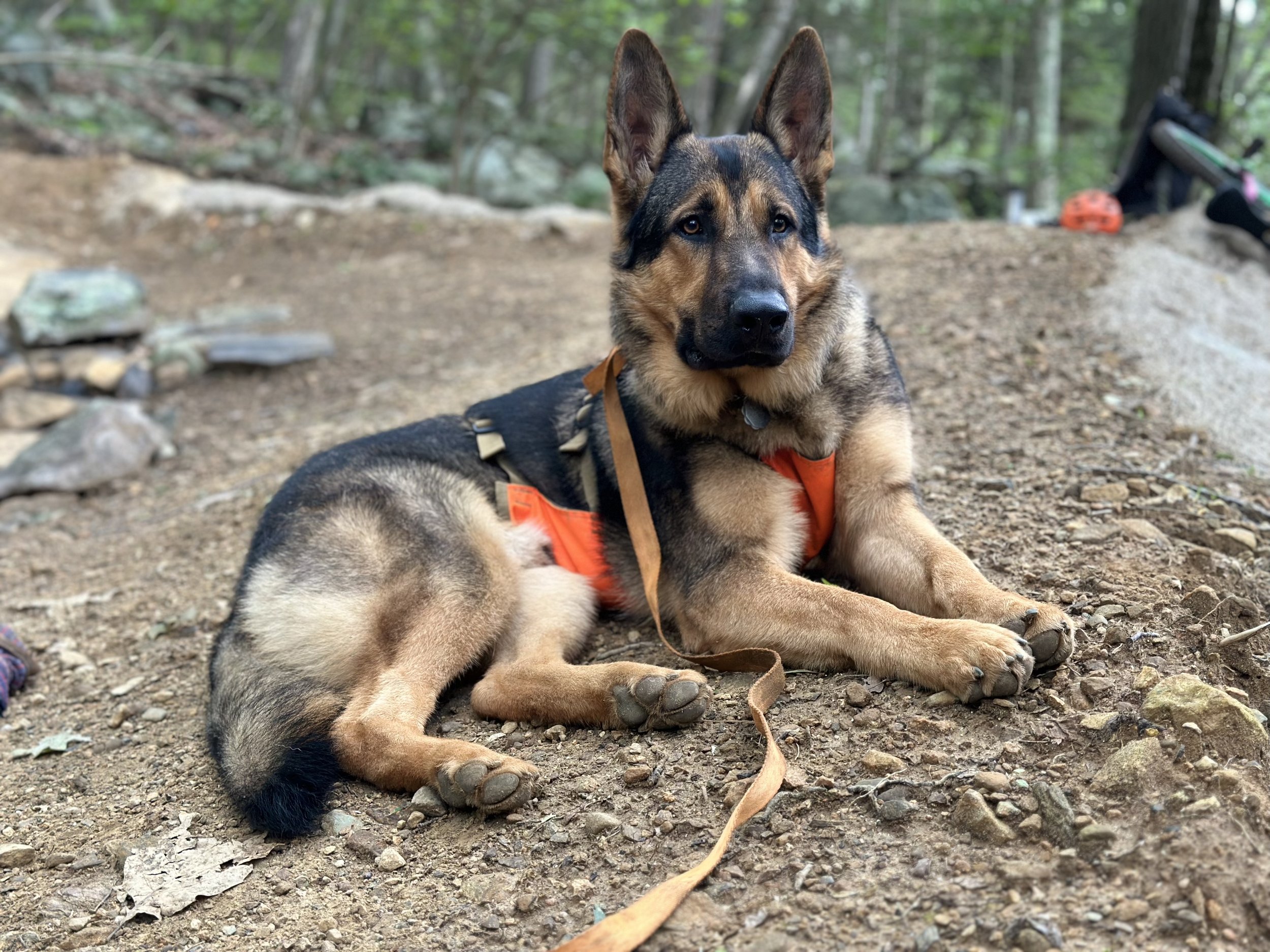
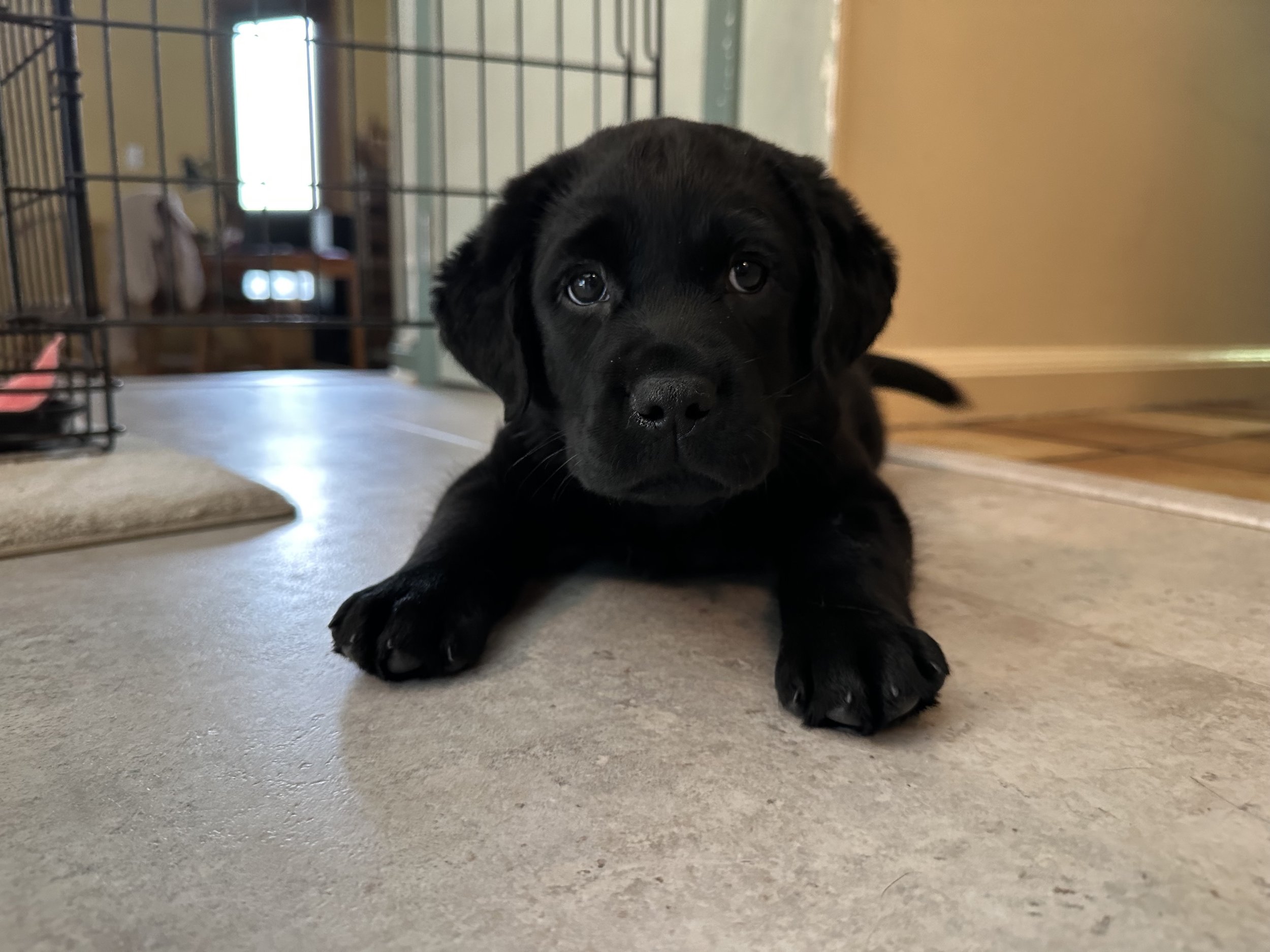

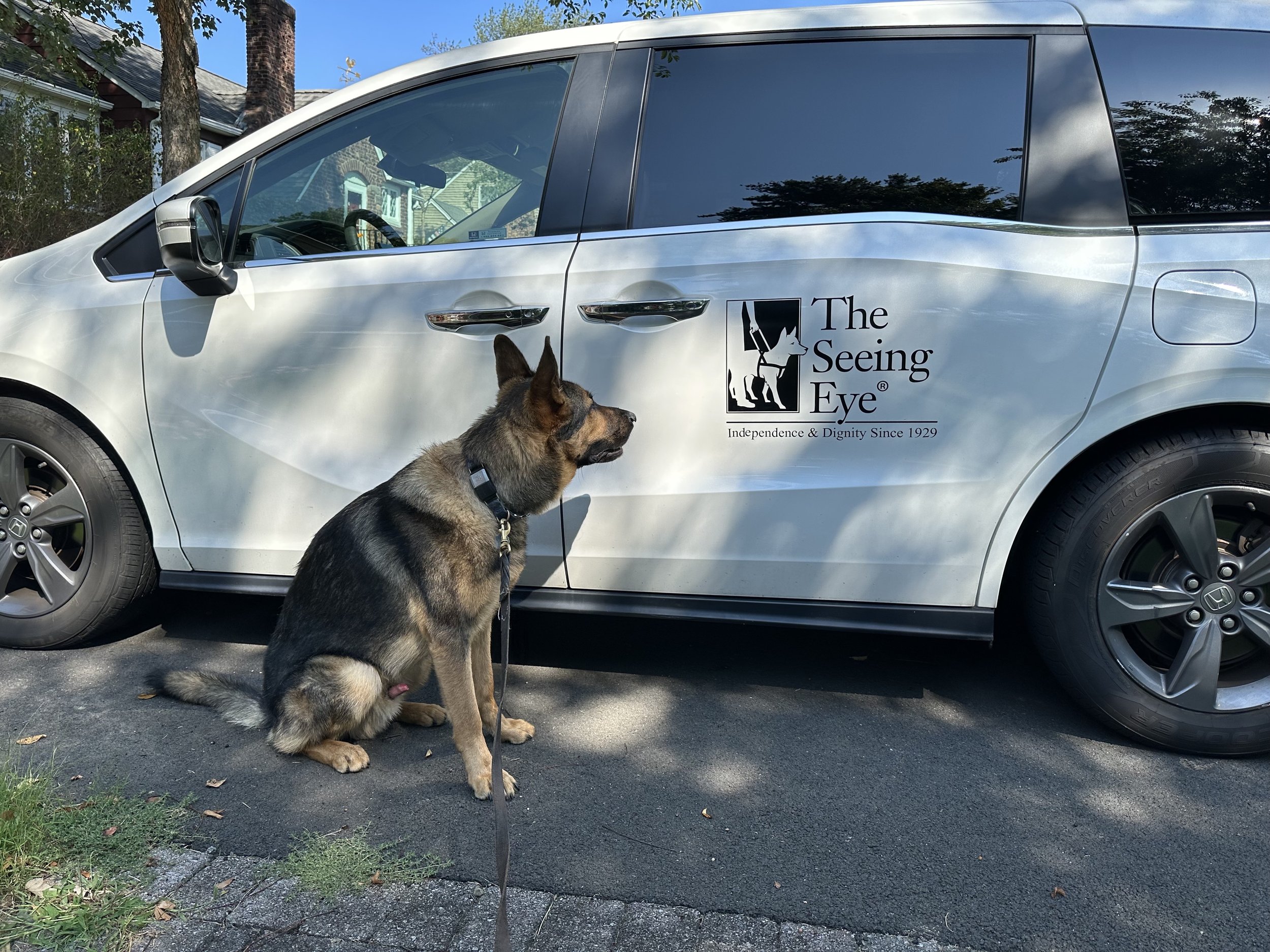

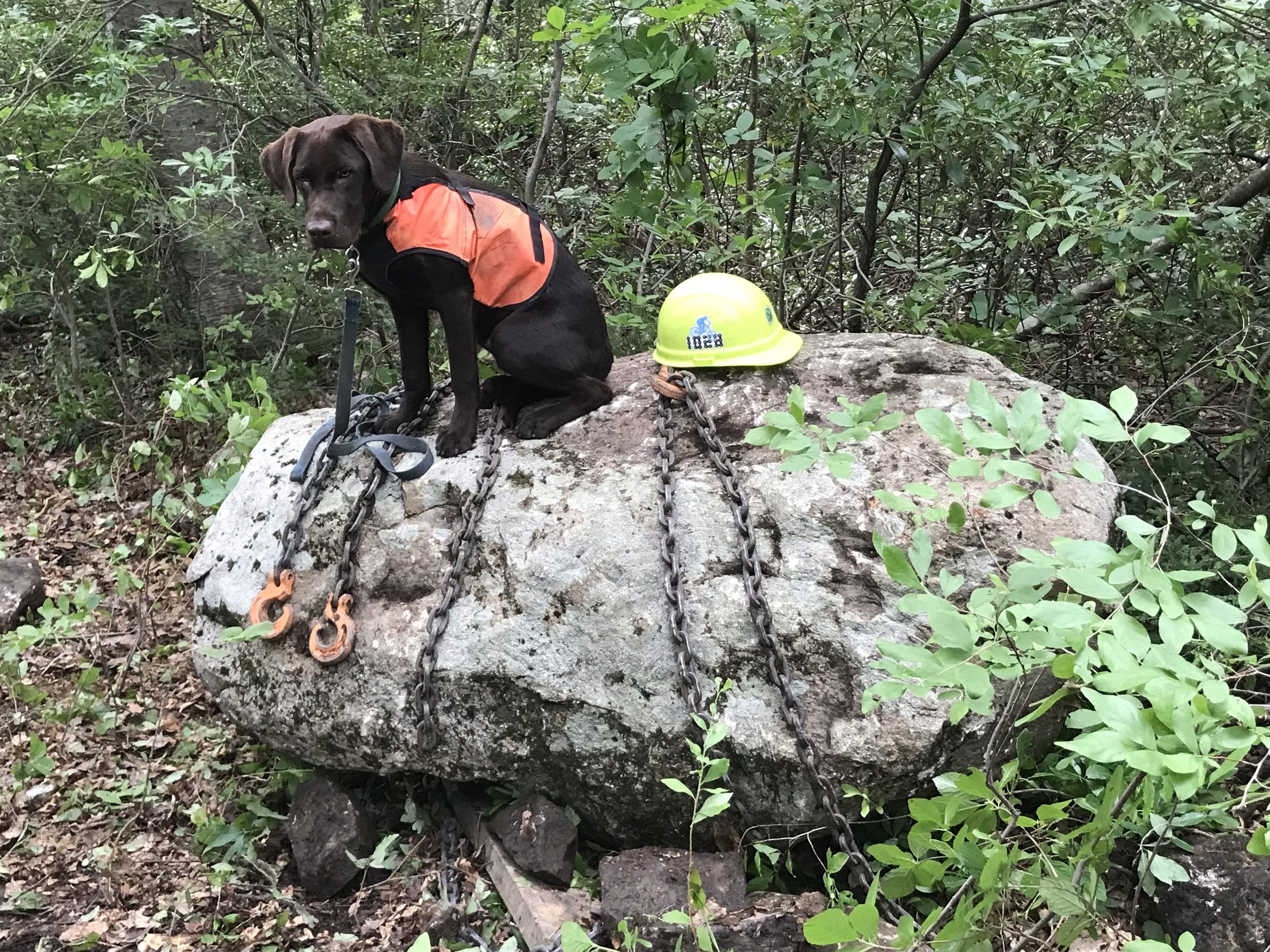
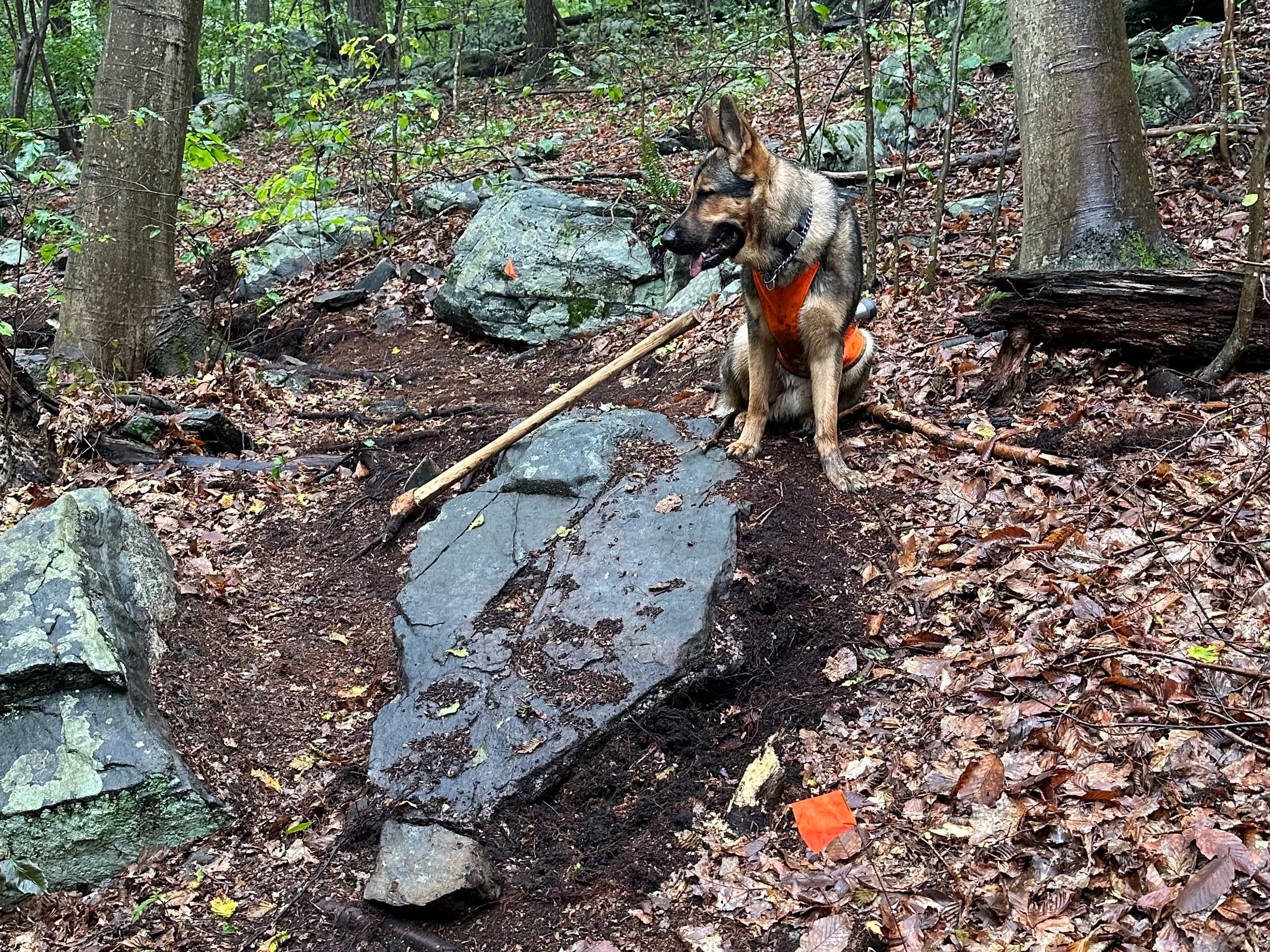
Brian is assigned the puppies at 7 weeks and raises them until they are 13 months old and is now on his 7th puppy. He goes to training classes 2 times a month where he works with instructors to train the pups on commands and good manners. Other than walking on the left side, he specifically doesn’t work with the dogs on any “harness-related” training. He’s purely responsible for allowing the puppies to be puppies while exposing them to stimulation and teaching them to behave. The Seeing Eye arranges for group trips once a month to expose the puppies to new environments and situations. Brian says the puppies he raises get similar exposure to these group outings while out digging with him and other volunteers. “They are around bicycles and people” which helps prepare the dogs for being future guides for the blind. In addition, getting used to the “noises of construction and textures of the trail” and navigation of tight spaces on the trails makes them more comfortable when they start their training with a harness. “Just crossing the bridge on Hutch (Hutchinson Trail) is an extremely useful skill as a guide dog”, Brian commented. These are all experiences that benefit them in the long run by being prepared for different scenarios and environments.
I asked Brian how the short stint with the dogs affects him emotionally and he said “It’s very rewarding. You’re giving forward to someone else who will gain independence from your work”. Brian and his family, who help raise the dogs with him, always become attached to the puppies that are briefly part of the family. After 13 months, when returning the dogs, Brian finds the experience “bittersweet”. He says “You love the puppy but you know he’s going somewhere good”. On his last return of a dog, Brian exchanged him for a new puppy that was the son of the dog he had previously had. It was a special moment for Brian and his family.
These days, Brian spends more time on his unicycle than a bike and he rarely rides the trails he builds and maintains. In effect, his work on these trails is mostly for other users. Couple that with the nearly selfless act of raising dogs for the blind and you have a multitasking giver; He is volunteering to make trails for others while volunteering to raise dogs for people who need them. He’s a true “mensch”. Next time you see Brian on the trail, stop and take time to say hi, give him a hand, or pet his puppy. He definitely deserves it.

